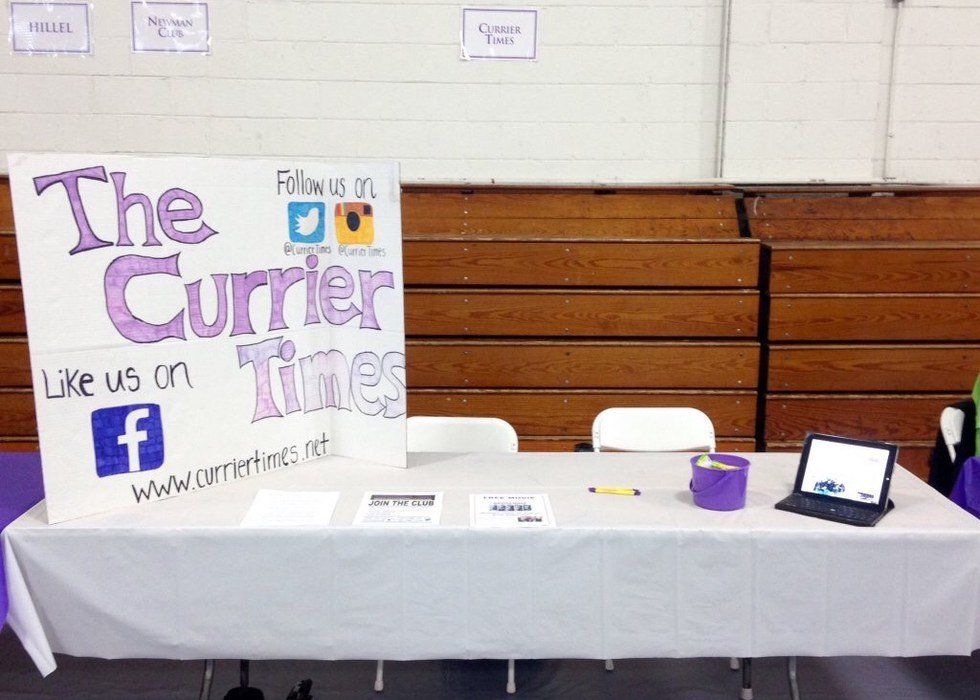There is an obvious lack of respect for student journalists in comparison to professional publications. And while it is obvious that student news publications do not have the same resources and establishment of news outlets that are deep-rooted sources in communities, student publications have the same ethical and moral guidelines as any journalist-run source. Student news publications and media outlets have always struggled with a lack of credibility and lack of readership in the same regards to any other news outlet. But the problem begins with issues of freedom of speech.
Let's look back to 1965, at the Tinker v. Des Moines Independent Community School District case in which students fought for the right to express themselves and act and speak as they please, as long as it is in a non-threatening way. The incident began when three students wore black armbands protesting the Vietnam War and school administrators responded by creating a policy prohibiting any student from wearing said armbands. The case eventually made it to the Supreme Court and, it was decided that the First Amendment applied to public schools and that valid reasons would have to be presented by school administration before suspension or disciplinary action could be taken.
This ruling was a huge advantage for students in general, but also for news publications. This meant that student news media would be able to report on whatever they deemed newsworthy as long as it didn’t contain any traces of malice, libel, etc.: things that a news publication would need to avoid anyway.
However, in 1988 this total freedom of speech was drastically altered. The Hazelwood School District vs. Kuhlmeier was a case taken all the way to the Supreme Court. The case revolved around the censorship of two articles published in The Spectrum, the student newspaper of Hazelwood East High School in St. Louis County, Missouri. The school principal removed an article concerning divorce and another concerning teen pregnancy without notifying the student writers, who felt their First Amendment rights were violated. A lower court sided with the school before it was overturned by the U.S. Court of Appeals for the Eighth Circuit. Supreme Court then overturned the Circuit court decision, stating that school administrators could exercise prior restraint of school-sponsored expression, such as school newspapers and assembly speeches, if the censorship is "reasonably related to legitimate pedagogical concerns."
The case of Hazelwood vs. Kuhlmeier was a large setback for student news publications. Stories would need to be run by higher administration before being published. This meant that any controversial article written was immediately altered if not completely removed all together. Important topics were being filtered, going unwritten and readers were left uninformed.
Although these laws only apply to some schools in certain areas, many student news publications still face many of these same violations of freedom of speech and administrative constraints. This brings back the main concern of the lack of credibility and respect student news media faces.
It can even be argued that student-run news publications have more ethical and moral dilemmas than larger publications. Reporting on incidents such as sexual assaults and domestic violence have journalists questioning what is moral. That decision is even more difficult when writing news on a small campus or knowing the student who is portrayed in a negative light in an article.
Another significant issue is a lack of resources. This is far less pressing in the age of information with new technology available for creating and publishing content, but it still prevents student publications from achieving what others in the industry can. News outlets like The Boston Globe get press credentials so they can attend concerts and sporting events for free. Those opportunities alone open up entirely new avenues for journalists to report on.
Viewership is an immense struggle for student publications. It is hard enough to find students willing to write for a school newspaper, let alone get students to read and share posts. Because of the demands of our electronically obsessed generation, news sources (both professional and student run) are turning to social media sources to reach more readers.
Maybe this has to do with age. Maybe millennials don’t think that being informed is important. Maybe we don’t see the relevance of news in our daily lives. Maybe our generation simply doesn’t care about what is newsworthy. Maybe we would rather spend our time playing "Pokemon Go" than be aware and concerned about the turmoil our world seems to be facing.





















